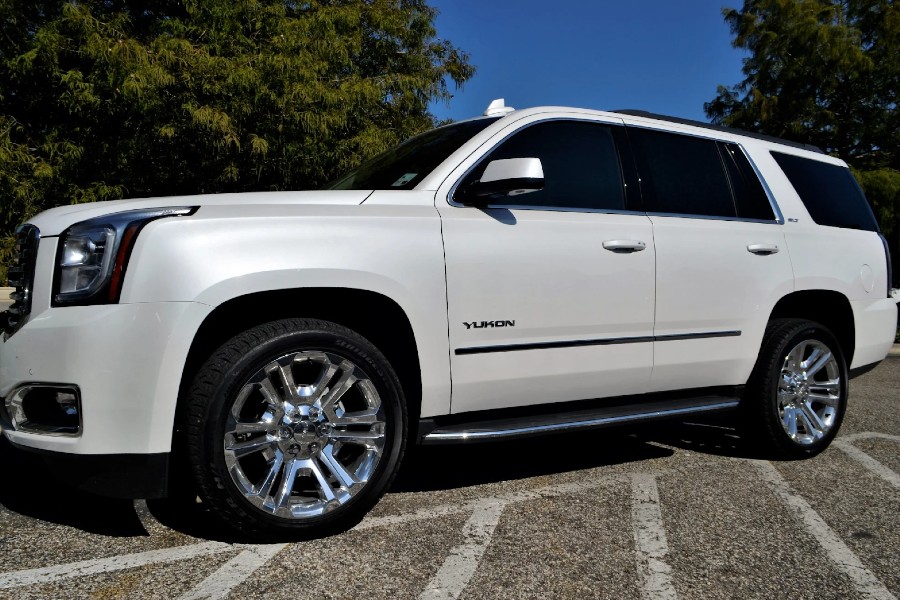
Choosing a vehicle today is about more than just transportation; it’s about finding a companion for your daily journeys, a reliable partner for your adventures, and a haven for you and your loved ones.
With many options, each offering unique features and benefits, the decision can feel like navigating an intricate maze. We’ve outlined the top seven factors to simplify this process. This guide will ensure your next vehicle meets your needs and enhances your driving experience.
1. Research Different Car Models
You want to avoid getting stuck on the roadside with a costly repair bill because you didn’t do your research. Take the time to compare different models, read reviews, and consider factors like safety ratings, fuel efficiency, and maintenance costs. The model you choose should align with your lifestyle and the purpose for which you intend to use it. Take a closer look at GMC Sierra vs Chevy Silverado if you’re looking for a reliable and powerful truck perfect for hauling heavy loads and off-road adventures. Researching different car models will help you make an informed decision and ensure you are satisfied with your purchase for years to come.
2. The Vehicle Type and Purpose
Cars differ not only in size, speed, and design but also in their intended use. Before looking at any specific models, determine the type of vehicle you need based on your daily activities. Suppose you have a large family frequently taking road trips; an SUV or minivan may be the best fit. A fuel-efficient sedan might be more suitable if you commute long to work.
Consider alternative options depending on your lifestyle and needs. These may include electric, hybrid, or eco-friendly vehicles for those looking to reduce their carbon footprint. Sports cars, luxury vehicles, and trucks are also available for those with specific preferences.
3. Consider Fuel Efficiency and Environmental Impact
With the rising cost of fuel and increasing awareness of climate change, it’s essential to consider a vehicle’s fuel efficiency and environmental impact. Cars with better gas mileage will save you money in the long run while also reducing your carbon footprint. When evaluating a vehicle’s fuel efficiency, consider engine size, transmission, and aerodynamics. For instance, a truck with a smaller engine and manual transmission may have better gas mileage than a larger truck with an automatic transmission.
4. Don’t Overlook Safety Features and Ratings
Getting caught up in features such as leather seats and a sunroof is accessible, but safety should always be a top priority when selecting a vehicle. Look for cars with advanced safety features like airbags, stability control, and blind-spot monitoring. Additionally, the vehicle’s safety ratings should be researched from reputable sources like the National Highway Traffic Safety Administration (NHTSA) or the Insurance Institute for Highway Safety (IIHS). These organizations conduct crash tests to determine a vehicle’s safety performance so you can make an informed decision.
5. Cost of Ownership
The long-term cost of owning a car is considerably more than the actual purchase price. Ownership costs include depreciation, insurance, maintenance, repairs, and fuel expenses. Depreciation refers to the decrease in a car’s value over time. Some vehicles lose value faster than others, which can impact resale value. Insurance and maintenance costs also differ between car models, so consider these factors.
6. Decide on a New or Used
Buying a new or used car is a significant decision when choosing your next vehicle. Each option has its benefits and drawbacks. A new vehicle offers the latest technology, safety features, and warranty for peace of mind. It also allows customization, from color choices to optional add-ons. However, new cars are more expensive and depreciate quickly in the first few years.
On the other hand, a used car may offer better value, having already depreciated. Used vehicles usually have a lower price tag, leading to lower insurance premiums and less financial strain. However, the risk lies in the vehicle’s history; hidden issues may arise. It’s crucial to have a trusted mechanic inspect any used car and review its maintenance records.
7. Take it for a Test Drive
Always take a vehicle for a test drive before making your final decision. Sitting behind the wheel and experiencing how the car handles, performs, and feels is crucial to determining if it fits you. Pay attention to the steering, braking, and acceleration and how comfortable you feel in the driver’s seat. Feel free to take your time during the test drive and ask questions about any features or concerns you may have.
Selecting a vehicle is about more than practicality and functionality. It’s also essential to consider the emotional aspect of driving a car. When choosing your next vehicle, consider how it makes you feel and if it aligns with your style and preferences. A car is not just a mode of transportation; it can be an extension of your personality.
Become a Harlem Insider!
By submitting this form, you are consenting to receive marketing emails from: Harlem World Magazine, 2521 1/2 west 42nd street, Los Angeles, CA, 90008, https://www.harlemworldmagazine.com. You can revoke your consent to receive emails at any time by using the SafeUnsubscribe® link, found at the bottom of every email. Emails are serviced by Constant Contact








